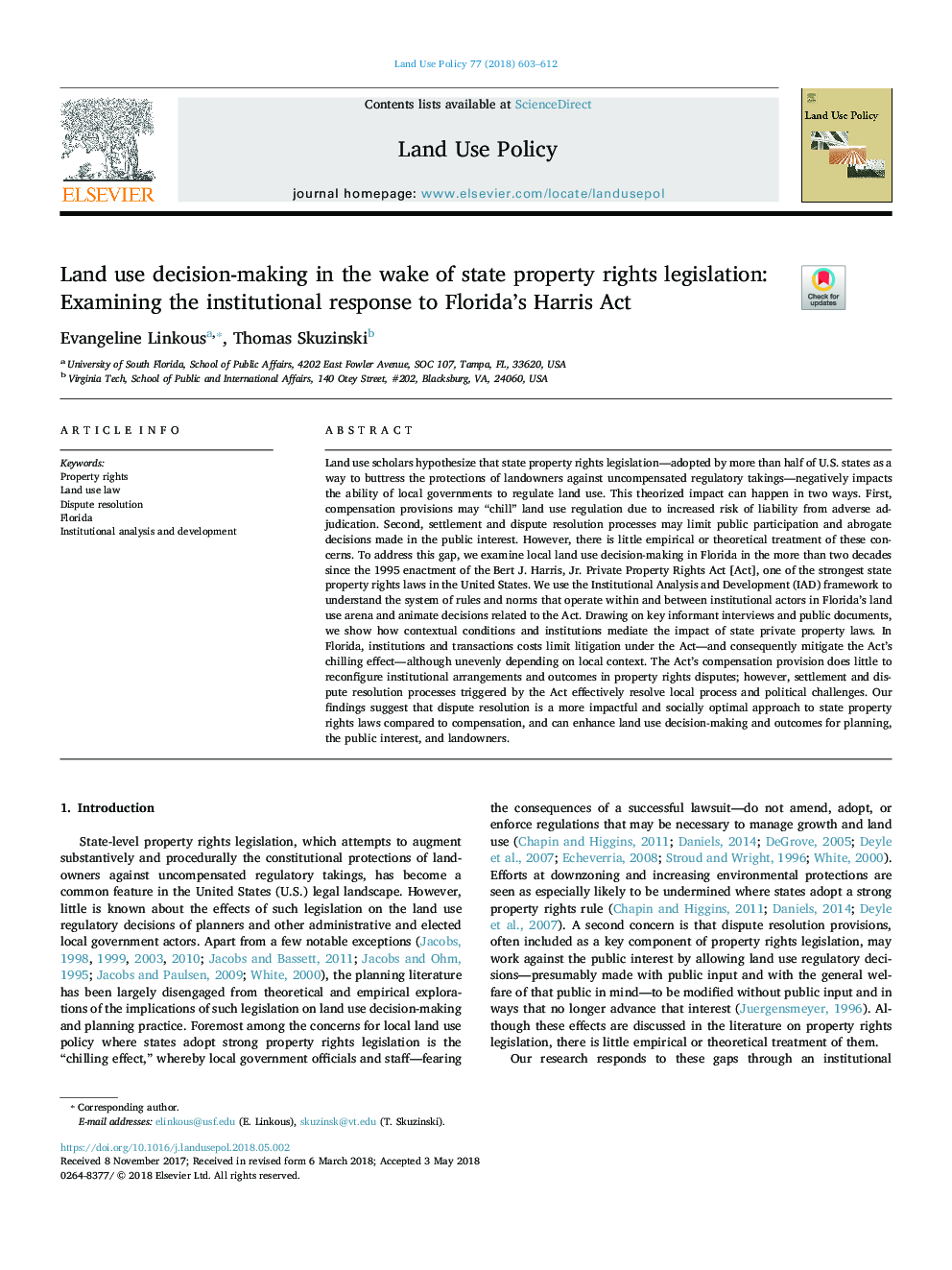| کد مقاله | کد نشریه | سال انتشار | مقاله انگلیسی | نسخه تمام متن |
|---|---|---|---|---|
| 6546189 | 1421806 | 2018 | 10 صفحه PDF | دانلود رایگان |
عنوان انگلیسی مقاله ISI
Land use decision-making in the wake of state property rights legislation: Examining the institutional response to Florida's Harris Act
دانلود مقاله + سفارش ترجمه
دانلود مقاله ISI انگلیسی
رایگان برای ایرانیان
موضوعات مرتبط
علوم زیستی و بیوفناوری
علوم کشاورزی و بیولوژیک
جنگلداری
پیش نمایش صفحه اول مقاله

چکیده انگلیسی
Land use scholars hypothesize that state property rights legislation-adopted by more than half of U.S. states as a way to buttress the protections of landowners against uncompensated regulatory takings-negatively impacts the ability of local governments to regulate land use. This theorized impact can happen in two ways. First, compensation provisions may “chill” land use regulation due to increased risk of liability from adverse adjudication. Second, settlement and dispute resolution processes may limit public participation and abrogate decisions made in the public interest. However, there is little empirical or theoretical treatment of these concerns. To address this gap, we examine local land use decision-making in Florida in the more than two decades since the 1995 enactment of the Bert J. Harris, Jr. Private Property Rights Act [Act], one of the strongest state property rights laws in the United States. We use the Institutional Analysis and Development (IAD) framework to understand the system of rules and norms that operate within and between institutional actors in Florida's land use arena and animate decisions related to the Act. Drawing on key informant interviews and public documents, we show how contextual conditions and institutions mediate the impact of state private property laws. In Florida, institutions and transactions costs limit litigation under the Act-and consequently mitigate the Act's chilling effect-although unevenly depending on local context. The Act's compensation provision does little to reconfigure institutional arrangements and outcomes in property rights disputes; however, settlement and dispute resolution processes triggered by the Act effectively resolve local process and political challenges. Our findings suggest that dispute resolution is a more impactful and socially optimal approach to state property rights laws compared to compensation, and can enhance land use decision-making and outcomes for planning, the public interest, and landowners.
ناشر
Database: Elsevier - ScienceDirect (ساینس دایرکت)
Journal: Land Use Policy - Volume 77, September 2018, Pages 603-612
Journal: Land Use Policy - Volume 77, September 2018, Pages 603-612
نویسندگان
Evangeline Linkous, Thomas Skuzinski,